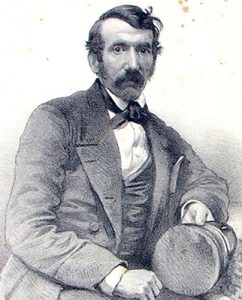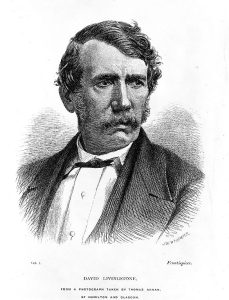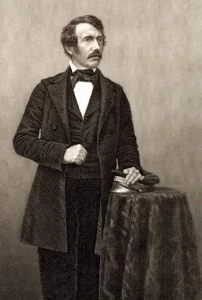David Livingstone, the legendary explorer and missionary, continues to be a figure of immense significance in Zambia’s history, as highlighted by a recent statement from the British Envoy to Zambia. Speaking at a commemorative event, the envoy emphasized Livingstone’s profound influence on the country, underscoring his enduring legacy in shaping Zambia’s cultural and historical identity.



A Catalyst for Change in Zambia
David Livingstone’s arrival in Zambia in the mid-19th century marked the beginning of a transformative period in the region’s history. As the British Envoy noted, Livingstone was not only an explorer but also a pioneer of social change. His work in Zambia laid the groundwork for the country’s development in multiple arenas, including education, healthcare, and the abolition of slavery.
Livingstone’s tireless efforts to map the interior of Africa and his deep commitment to improving the lives of the people he encountered left a lasting impact. His detailed accounts of Zambia’s landscapes, peoples, and cultures brought global attention to the region, fostering a greater understanding of its significance and potential.
Championing Education and Healthcare
One of Livingstone’s most enduring contributions to Zambia was his advocacy for education and healthcare. The British Envoy highlighted how Livingstone’s work set the stage for the establishment of schools and medical facilities in Zambia, which played a crucial role in the country’s development. His commitment to education was driven by a belief in the power of knowledge to uplift communities and promote social progress.
Livingstone’s influence is still evident today in Zambia’s educational institutions and healthcare initiatives, many of which trace their roots back to his efforts. The envoy pointed out that Livingstone’s legacy continues to inspire modern-day projects aimed at improving access to education and healthcare across the country.
A Voice Against Slavery
Perhaps one of Livingstone’s most significant contributions was his relentless fight against the slave trade. During his time in Zambia, Livingstone witnessed the devastating effects of slavery on local communities and became a vocal advocate for its abolition. The British Envoy emphasized that Livingstone’s anti-slavery stance was not only a moral crusade but also a catalyst for broader social and political changes in the region.
Livingstone’s advocacy resonated far beyond Zambia, influencing international movements against slavery and helping to shift global perspectives on human rights. His legacy in this area continues to be honored in Zambia, where his efforts are remembered as a vital part of the country’s history.
Strengthening UK-Zambia Relations
The British Envoy also highlighted how David Livingstone’s legacy has served as a foundation for the strong ties between the United Kingdom and Zambia. Livingstone’s work fostered a relationship based on mutual respect, shared values, and a commitment to social progress. This relationship has evolved over the years into a robust partnership that continues to benefit both nations.
Livingstone’s legacy is celebrated not only in Zambia but also in the UK, where his life’s work is recognized as a cornerstone of the historical relationship between the two countries. The envoy emphasized that this shared history is a source of pride and a reminder of the enduring bonds that unite the UK and Zambia.
A Legacy That Endures
As Zambia continues to develop and grow, the legacy of David Livingstone remains a vital part of its national identity. The British Envoy’s remarks underscore the importance of remembering and honoring the contributions of figures like Livingstone, whose work transcended their time and continues to influence the present.
Livingstone’s impact on Zambia is a testament to the power of compassion, determination, and a commitment to justice. His legacy is not just a chapter in history but a living force that continues to inspire generations of Zambians and others around the world.
In commemorating David Livingstone’s contributions, Zambia and the UK reaffirm their commitment to the values he championed—education, healthcare, human rights, and the pursuit of knowledge. These values, embodied in Livingstone’s life and work, continue to guide the relationship between the two nations and inspire efforts to create a better future for all.
Recent Comments